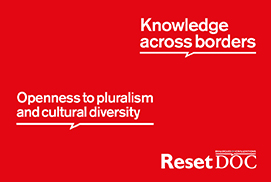19 May 2016
Four years after the “Jasmin Revolution” in Tunisia and in the wake of the Nobel Peace Prize 2015 awarded to the Tunisian civil society, there is still the need to understand the deep causes and challenges of this exceptional success story in the Arab world. Tunisian scholars and activists interviewed by Reset-Doc analyze the key events and features of their country democratic transition, trying to provide answers to the many questions and problems still open today with regards to economy, youth, social justice and inequalities.



